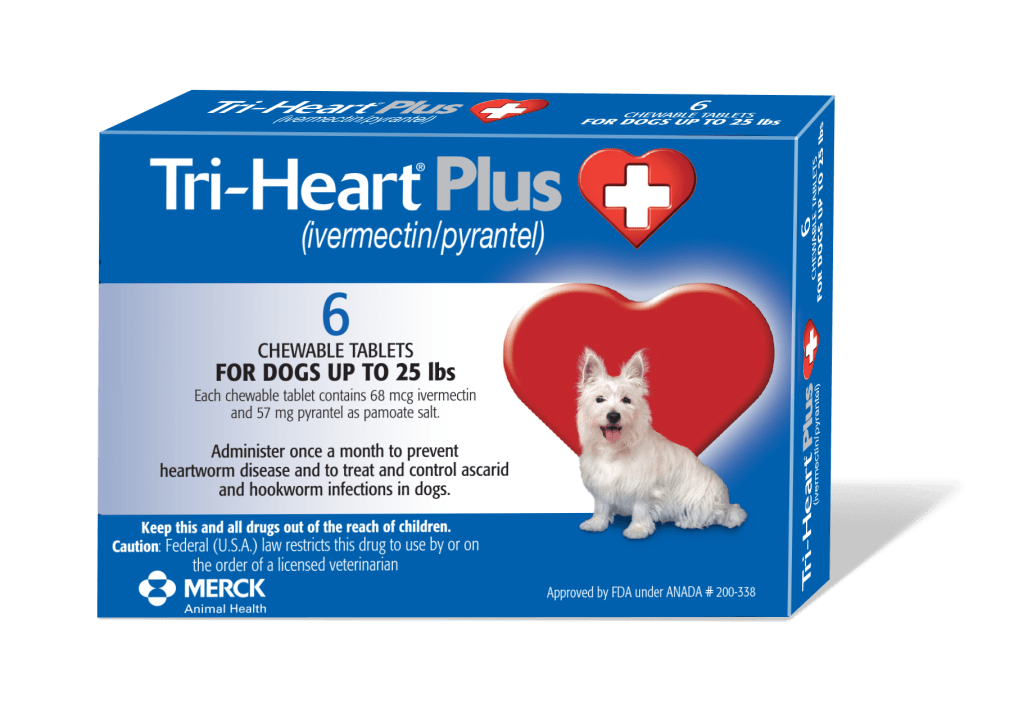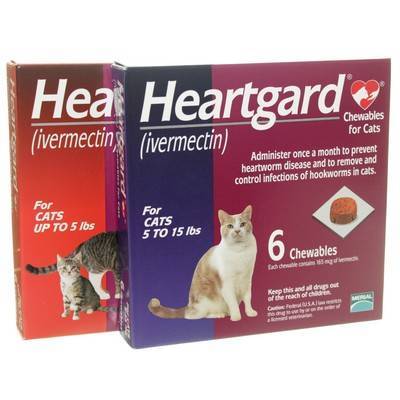Ivermectin is an antiparasitic drug. It has been commonly prescribed to prevent parasite infections, heartworm prevention and to treat other infections such as ear mites. Ivermectin also known as Heart Gard or Ivomec is widely used to manage gastrointestinal parasites, skin parasites and parasites in the bloodstream among cats and dogs. It causes neurologic damage to the parasite resulting in their paralysis and death.
What is Ivermectin?

Ivermectin is a prescription drug that is accessible only by a prescription from a licensed veterinarian. It is most popularly known for preventing heartworm disease in cats and dogs. Ivermectin use is not effective against liver flukes and tapeworms.
Veterinary medicine Ivermectin is available under different brand names such as Ivomec, Iverhart plus, Iverhart max, Heartgard and Heartgard plus and Tri-Heart plus. The launch of Ivermectin brought an absolute revolution in parasite control for horses, dogs and livestock. It made heartworm preventive treatment easy changing it from a daily pill to a monthly pill.
Veterinary Uses of Ivermectin Against Internal And External Parasites
Parasitic diseases are very common in animals. Parasites can cause infections of the ears, skin, stomach, intestines and internal organs including the heart, liver and lungs. Multiple medicines have been developed to prevent or kill parasites including worms, mites, fleas and ticks. Ivermectin is among the most effective anti-parasitic medications.
Ivermectin may be used for the treatment of mites, intestinal parasites and capillaria in dogs. Ivermectin can also be used as an extra label to kill microfilaria (microscopic offspring) in heartworm-affected dogs.
Ivermectin pours for cattle is intended for treatments and control of gastrointestinal roundworms, sucking and biting lice, horn flies, lungworms, grubs and mange mites in cattle.
Ivermectin For All Long, Round And Skinny Worms
Ivermectin and other medications that belong to this class of drugs have a wide-ranging activity against various parasitic worms including roundworms, whipworms and hookworms which infect the intestines of cats and dogs. In cats, Ivermectin may be used for the treatment of cat scabies and ear mites.
In veterinary medicine, many medications are commonly prescribed for off-label use. The only disadvantage of using Ivermectin as a dewormer drug is that it is not broad spectrum and does not work against tapeworm.
Uses of Topical Ivermectin
Veterinary Ivermectin topical gel is a semisolid formulation intended for the treatment of certain parasitic skin diseases in animals. Primarily, topical Ivermectin is used to treat many skin conditions in animals including scabies, lice, mange, fleas and ticks. This medication works by eradicating parasites that cause these diseases.
Heartworm Disease Treatment

Your vet needs to know the comprehensive medical history of your dog before treating the dog for heartworm infection. Dogs with severe infection may require medications to alleviate heart and lung disease before heartworm treatment.
Prescribing the best treatment regimen to your dog depends on certain factors such as the number of worms present in the dog’s body, the extent of damage worms have caused and whether the dog is suffering from any other disease that may influence the heartworm infection treatment.
Ivermectin is well known for its successful use as a heartworm preventative in dogs and cats. However, it does not kill adult heartworms. It shortens the lifespan of adult heartworms. Ivermectin sterilizes adult heartworms and kills microfilaria preventing the dogs from being a source of contagion. Ivermectin also kills L3 and L4 larvae preventing new infections.
An injectable medicine, Melarasomine is administered to kill adult heartworms. Melarsomine kills adult heartworms present in the heart and adjacent vessels. It is administered in a series of injections.
Proper treatment kills both immature and mature heartworms when you follow your veterinarian’s instructions. Some veterinarians prescribe medications before and after administering Melarsomine. The antibiotics may be prescribed to kill bacteria and young heartworms and reduce the lung injury linked to Melarsomine treatment.
Heartworm-preventive medications are also used to kill young larval stages. Corticosteroids can diminish inflammation that can be caused by dying heartworms. Precisely follow your veterinarian’s instructions and use medications exactly as directed to avoid toxicity and get maximum benefits of the medications.
Heartworm Prevention with Ivermectin
The scientific name of the heartworm is Dirofilaria immitis. Dogs get heartworm infections when a mosquito holding juvenile heartworms inserts the developing worms in the dog. Then juvenile heartworms travel to the blood vessels of lungs and there they grow into spaghetti-like worms.
Heartworm disease is preventable. In severe cases, these worms spill over the heart. Juvenile heartworms are extremely vulnerable to Ivermectin which is why veterinarians usually prescribe a monthly regimen. Ivermectin, Moxidectin, Milbemycin oxime and Selamectin are members of the Avermectin class of drugs. If your god gets monthly heartworm preventative, one of these medications will be given.
Mibemycin oxime is a common medication for heartworm disease and it treats internal parasites (roundworms and hookworms) in dogs and cats. It is also found in combination products with other medications. This drug is also used off-label for the treatment of infestations in dogs.
Heartworm prevention treatment should be started at 6 to 8 weeks of age in dogs. At this age, pretesting is not required. However, if preventive treatment in dogs begins at 7 months or older age, an antigen test is necessary to make sure that the dog is not already infected. Also, an additional negative test is recommended later to ensure that the dog is not infected.
Mostly, year-round treatment is prescribed for dogs however, ask your veterinarian for a suitable treatment schedule for your dog. Make sure your pet gets the prescribed doses at the right time. As most preventive medications are given once a month, pet owners may forget to administer every dose of medication.
Skipping a dose at the recommended date may cause serious consequences in dogs. In case you forget to get your pet a scheduled dose, contact your veterinarian regarding the next dose as soon as possible and get your pet administered with the medicine.
Precautions You Should Take
- Generally, Ivermectin is reported as a safe and successful drug when prescribed by a licensed veterinarian and used as instructed however it may cause side effects in some animals.
- Do not use Ivermectin if your pet is allergic or hypersensitive to this drug or its ingredients.
- Ivermectin should be used cautiously in collie or collie-mixed breeds as it may cause toxic effects. It particularly happened when using higher doses of this drug.
- Ivermectin should not be prescribed to dogs that are diagnosed positive for heartworm disease except under the strict supervision of a veterinarian.
- Do not start with heartworm prevention with Ivermectin unless the dog is tested for heartworms.
- Typically, Ivermectin should not be used in dogs under 6 weeks of age.
- Ivermectin is relatively safe but may cause overdoses if a huge amount of this drug is administered or if the medicine is given to heartworm-positive dogs.
- Symptoms of overdose include tremors, stumbling, weakness, blindness or disorientation which occur within 12 hours of the overdose.
- You may need to give a supportive treatment for shock in heartworm-positive dogs.
- Cautiously use Ivermectin at higher doses when combined with Comfortis, a medication that is used to treat or prevent flea infestations.
Post Treatment Complications

After treatment, the dead heartworms may cause severe respiratory issues particularly if dogs are not limited to restricted activity following treatment. These problems may occur up to six weeks after heartworm treatment.
The symptoms of complications post-treatment include spitting up blood, coughing, rapid breathing, lack of appetite, fever and tiredness. In dogs that are experiencing complications of heartworm treatment, cage confinement with some days of oxygen treatment and medications to manage inflammation and reduce blood clotting can help improve the symptoms. With proper care, most dogs start recovering from post-treatment complications within 24 hours.
After heartworm disease treatment the treated dogs should be kept on heartworm preventative drugs and get tested after eight to twelve months to ensure that all the worms are killed. Retesting may be needed for those who test positive and if infection is diagnosed, a new series of treatments may be needed.
Does Ivermectin Kill Fleas?
Many medicines have been developed to prevent or kill infection-causing parasites including fleas, mites, ticks and worms. Although fleas and ticks are not spaghetti-like worms, some Ivermectin family drugs kill fleas, ear mites and ticks. Ivermectin and related medicines are among the most effective drugs for these.
Ivermectin Dosing For Dogs And Cats

The American Heartworm Society and The Companion Animal Parasite Council recommend year-round heartworm preventative treatment as well as flea and tick prevention. Do not use Ivermectin for your pets without consulting a veterinarian. The dosage of Ivermectin varies from species to species and depends on the intent of treatment.
The general dosage for heartworm prevention in dogs is 0.0015 to 0.003 mg per pound once a month and for skin parasites, 0.15 mg per pound once and then repeat dosing in 14 days. The dosage for gastrointestinal parasites is 0.1 mg per pound once.
The usual dosage for heartworm prevention in cats is 0.012 mg per pound once monthly. The duration of administration depends on the condition that needs to be treated, the pet’s response to the medication and any adverse effects.
Dog owners should complete the prescribed course of medicine as prescribed by the veterinarian. Do not stop the prescribed treatment even if your pet feels better to avoid the development of resistance or relapse, make sure your pet completes the treatment.
Ivermectin Side Effects In Dogs And Cats
:strip_icc()/is-ivermectin-safe-dogs-and-cats-3384698-hero-d795b74729a242b88ff78304be656b92.jpg)
Some most common side effects in pets include dilated pupils, vomiting, lethargy, seizure, blindness, loss of appetite, disorientation, depression or inability to stand. If you notice any serious side effects in your pet these may be due to Ivermectin toxicity, call your veterinary and seek medical help.
Ivermectin Associated Cautions And Concerns
Ivermectin tastes extremely bitter so some animals may object. Using Ivermectin in pregnancy and during lactation is safe and does not feel problematic. Some dog breeds may be considered at high risk of Ivermectin toxicity including Shetland sheepdogs, Collies, Australian shepherds, Old English sheepdogs and Merle-coloured Pomeranians. Not all dogs from these breeds are sensitive to Ivermectin.
Both dogs and cats may experience Ivermectin toxicity however it is rare. Ivermectin usually causes toxicity if given at 10 to 20 times the prescribed dose. Ivermectin should be used cautiously in collie breeds and mixed breeds because of potential toxic effects. It particularly happens when the drug is used at high doses.
